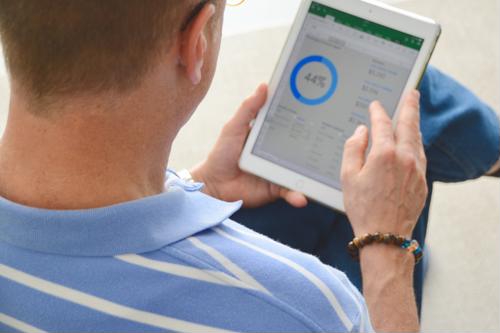
So, you bought your first home. Congratulations!
Throughout the process, you likely gave a lot of thought about budgeting for your down payment, closing costs and mortgage payments. Crunching numbers and defining a home purchase budget is an important part of the process.
Now that you’ve finalized your purchase, and perhaps already moved in, those expenses are over. But it’s still a smart idea to continue to create and adhere to a strategic budget.
Here are three categories every new homeowner should include in their budgets:
1. Ongoing expenses
Once you purchase your home, you will have several recurring expenses, such as:
Homeowners insurance.
Utilities.
Property taxes.
Homeowners association fees.
Mortgage payments.
The cost of each of these will depend on many factors, including the area in which you live, the size of your home, and more. You should be able to get a good idea about how much each of these will cost during the home purchase process.
Certain things, like homeowners insurance and property taxes, may only be paid annually or bi-annually. Prepare for these bills by regularly setting aside money to plan ahead.
2. Unexpected expenses
Most homeowners will encounter a surprise expense sooner or later that will need to be addressed. The best way to prepare for these situations is to continuously set aside money for them.
Allocating 1-2% of your income to a general savings account to cover these sudden expenses is a smart way to get ready for these events.
While it may not be possible to predict what will happen or when, you can assess the state of your home to get an idea of where problems might show up.
For example, the average lifespan of a furnace is between 20 and 30 years, according to Bob Vila. If the furnace in your new home is about 15 years old, you know it’s time to begin saving for a new one.
Take stock of the various areas of your home that are aging, or may need replacements in the upcoming years. Keep them in mind as you set aside money for future expenses.
3. Emergency and retirement savings
Purchasing your first home is expensive – there’s no way around it. But amidst it all, it’s important to stay on top of other financial needs, like saving for emergencies and planning for retirement.
Emergency savings
Your emergency savings account should cover your expenses should you lose your job unexpectedly. Ideally, you’ll have six months’ worth of savings in this fund, though three months is a good starting point. If you already have an emergency savings account, review and revise it after you purchase your home. At this point, your regular expenses and priorities will change, which will probably affect how much money you need to get through three to six months.
Retirement savings
Saving for retirement should be a priority no matter how far away from retirement you are today. That should not change when you buy your home. However, your new purchase could change how you plan for retirement, especially if you will still have a mortgage once you leave the workforce. Review your retirement savings strategy and adjust accordingly.
These three categories are important for all new homeowners to consider when planning out their finances. A carefully constructed budget will help you weather surprise events and predictable fees alike.
This information is intended for educational purposes only. Products and interest rates subject to change without notice. Loan products are subject to credit approval and include terms and conditions, fees and other costs. Terms and conditions may apply. Property insurance is required on all loans secured by property. VA loan products are subject to VA eligibility requirements. Adjustable Rate Mortgage (ARM) interest rates and monthly payment are subject to adjustment. Upon submission of a full application, a mortgage banker will review and provide you with the terms, conditions, disclosures, and additional details on the interest rates that apply to your individual situation.


